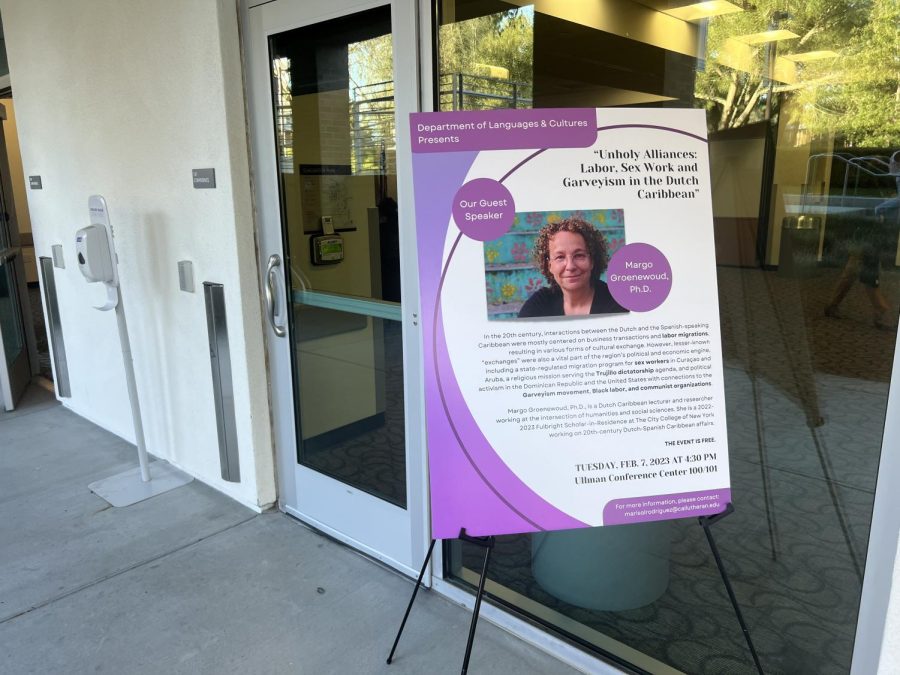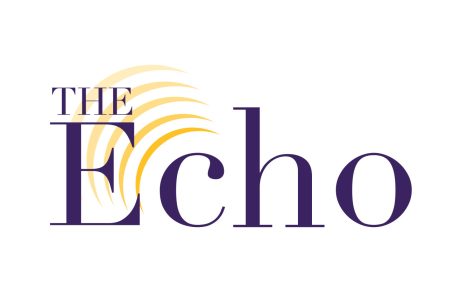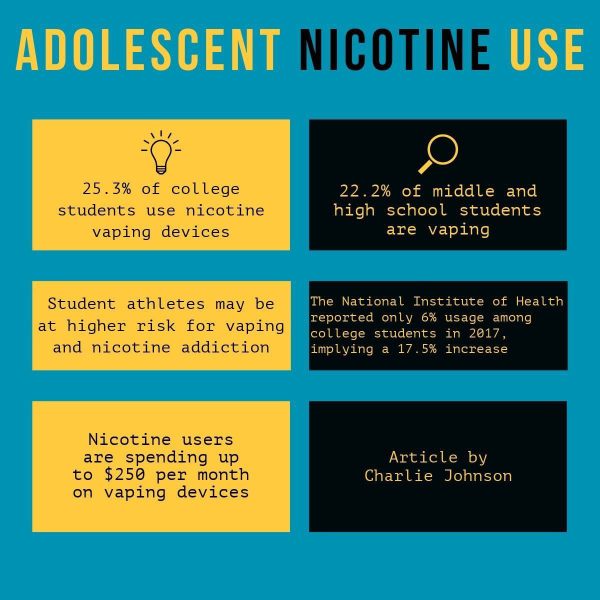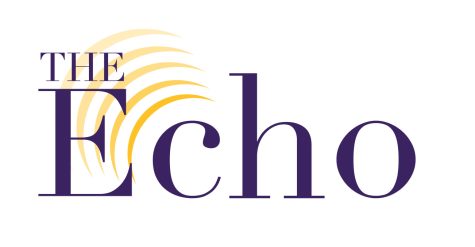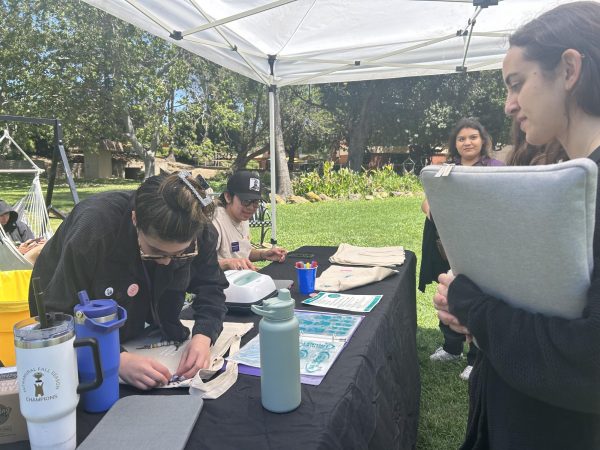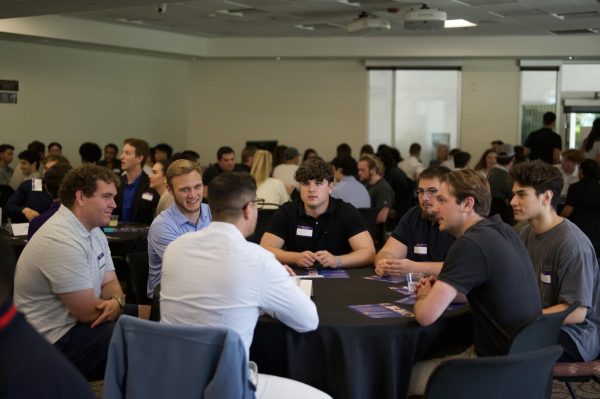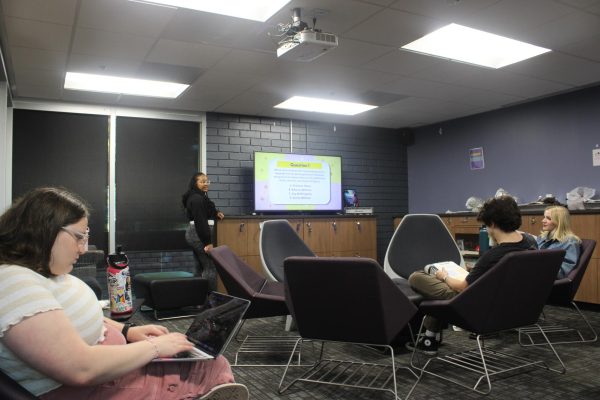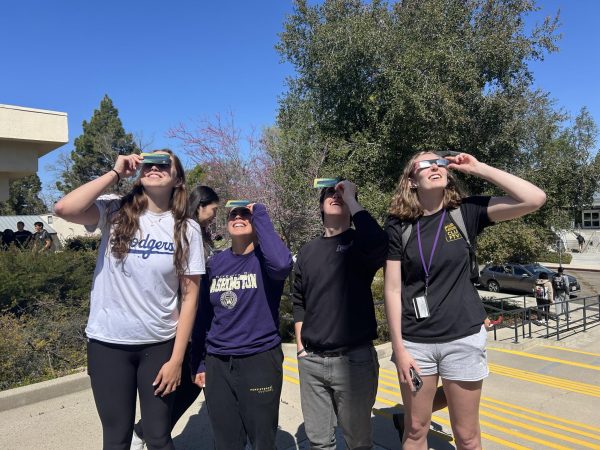Languages and Cultures Department presents on the Dutch Caribbean
Dutch Caribbean researcher Dr. Margo Groenewoud presented “Unholy Alliances: Labor, Sex Work and Garveyism in the Dutch Caribbean.”
February 14, 2023
The California Lutheran University Languages and Cultures Department welcomed guest speaker Margo Groenewoud who presented “Unholy Alliances: Labor, Sex Work, and Garveyism in the Dutch Caribbean.” The presentation focusing on Dutch Caribbean relationships was sponsored by the Languages and Cultures Department and Cal Lutheran’s Artists and Speakers Committee and was introduced by Cal Lutheran Spanish professor Sheridan Wigginton.
Wigginton and Groenewoud are research colleagues dating back to 2016 when they met at a research conference in Curaçao, according to Wigginton.
“Based on our discussions at that Curaçao conference, I wrote my sabbatical proposal on these issues of blackness and inclusion and the need to include the Dutch Caribbean in discussions on Latin American countries,” Wigginton said.
According to Groenewoud, this relationship shows the importance of creating relationships throughout academia that can one day create friendships and research opportunities like she and Wigginton’s relationship has.
Wigginton said she invited Dutch Caribbean researcher Margo Groenewoud to be a guest speaker because she wants students to see how different languages and cultures reform topics in society.
“Because Cal Lutheran is a small liberal arts university, this idea of finding connections and how systems work is exactly what we are seeing from these types of events,” Wigginton said.
Groenewoud said this conversation is important because she wants students to understand that the history of the Caribbean is important to that of the United States. She said that the Western world is a result of the exploitation of things like slavery in the Caribbean and students should be aware of that.
Groenewoud said the dictatorship and communism throughout these Spanish-speaking countries influenced her research.
“In the Netherlands, the Caribbean was like a faraway background garden,” Groenewoud said. “If you approach the Caribbean like that, you lose sight of a lot of things going on.”
Groenewoud said that the Netherlands is connected to the Caribbean in a number of ways which she is curious about, especially because she grew up and completed her studies in the Netherlands.
Her presentation included documents showing similarities between the names of the Dominican Republican and Dutch people. According to her presentation, her studies point these facts back to the labor migrations during the 20th century.
She said she developed herself and her work through Dutch Caribbean ideology. Groenewoud said the idea of the Dutch Caribbean connectedness is exactly how she views the world.
By growing up and completing her studies in the Netherlands, she researches these connections as a way to show her gratitude for her Dutch Caribbean background.
“I attended this event because in my U.S. Diversity and Spanish class we are learning about Caribbean culture, and I wanted to learn more about the Caribbean culture and its history,” first-year Coco Sandoval said.
Sandoval said she even started to think about some ideas for her own research after hearing this presentation, as she is a Spanish and Biology major.
According to Wigginton, these talks are beneficial for students of all majors because it helps them see a wide range of possibilities in research.
“Having a major doesn’t have to narrow your focus but it should give you a lens to see all other areas of focus,” Wigginton said.

